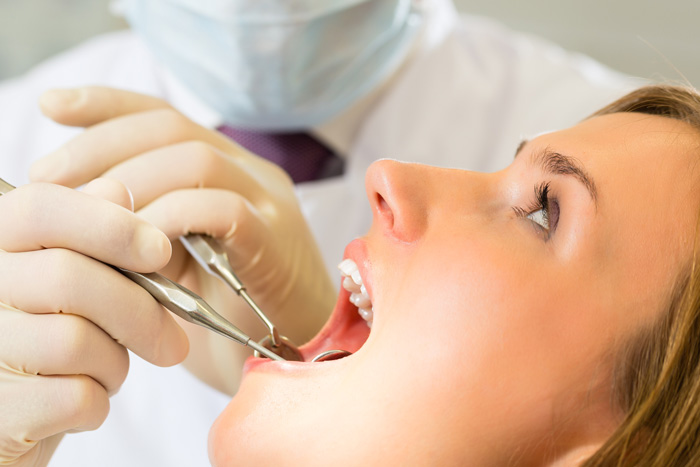Diagnosis
Periodontal Disease Diagnosis
At Dr. Nahel Yanni’s dental office, a periodontal exam will always be a part of your normal dental checkup. The best way to prevent periodontal disease, or to stop it from getting worse, is to take care of your gums and detect any irregularities early.

How Do You Check For Periodontal Disease?
A small dental instrument called a periodontal probe is used to gently measure the pocket (or sulcus) between the gums and teeth. A healthy sulcus measures three millimeters deep (or less) and does not bleed. As periodontal disease progresses, the pockets usually get deeper.
We will use pocket depth, as well as the amount of bleeding from your gums, inflammation, and tooth movement to make a diagnosis of one of the conditions on the spectrum of periodontal disease below:
Gingivitis
Gingivitis is the first stage of periodontal disease. Plaque and its toxic by-products irritate the gums, making them tender, inflamed, and likely to bleed.
Periodontitis
Plaque that isn’t removed by normal brushing or flossing hardens into tartar, which is also called calculus. As calculus and plaque continue to build up, the gums begin to recede from the teeth. Deeper pockets form between the gums and teeth, which can fill up with bacteria and pus. The gums become very irritated, inflamed, and bleed easily. You might experience slight to moderate bone loss at this stage of periodontal disease.
Advanced Periodontitis
Left untreated, the teeth lose more support as the gums, bone, and periodontal ligament continues to be destroyed. Unless treated, the affected teeth will become very loose and may fall out or require removal. Bone loss can run from moderate to severe when afflicted with advanced periodontitis.
How Do I Prevent Periodontal Disease?
It’s obvious that you don’t want to deal with any part of periodontal disease, so it’s important to get your teeth cleaned regularly, as well as having a periodontal exam. At our East Brunswick office, our dentist, Dr. Nahel Yanni, will perform a thorough examination of your gums and teeth to check for the early signs of gingivitis and then make sure that your teeth are clean before you leave. If you have problems with plaque we can also recommend ways that you can help prevent the unhealthy buildup of plaque between visits.
If you are already dealing with the painful effects of periodontal disease and you need treatment but you have anxiety about visiting a dentist, Dr. Yanni offers several different forms of sedation dentistry. Sedation dentistry is a great option if you need treatment but your fears and stress have caused you to put it off for too long.
